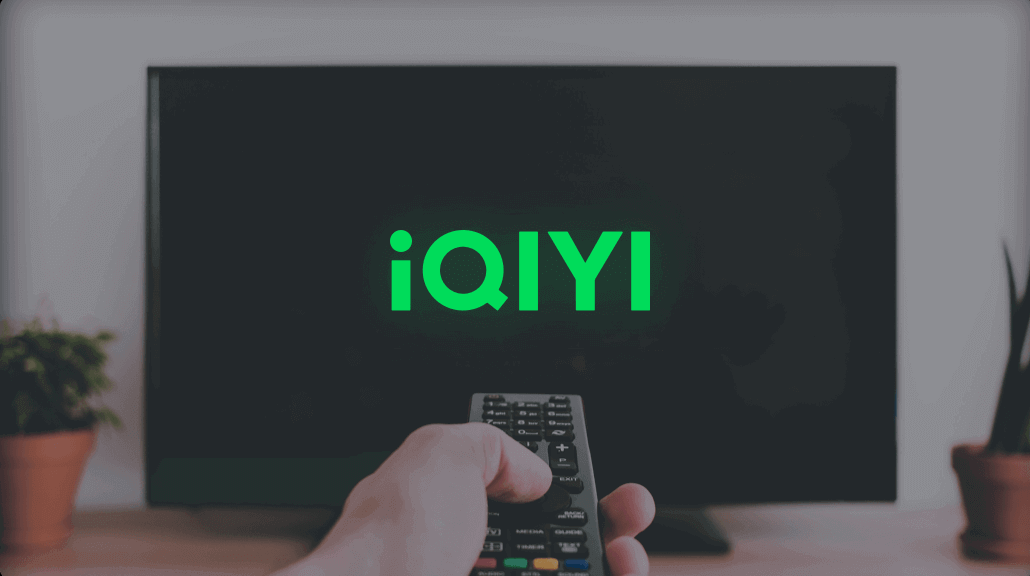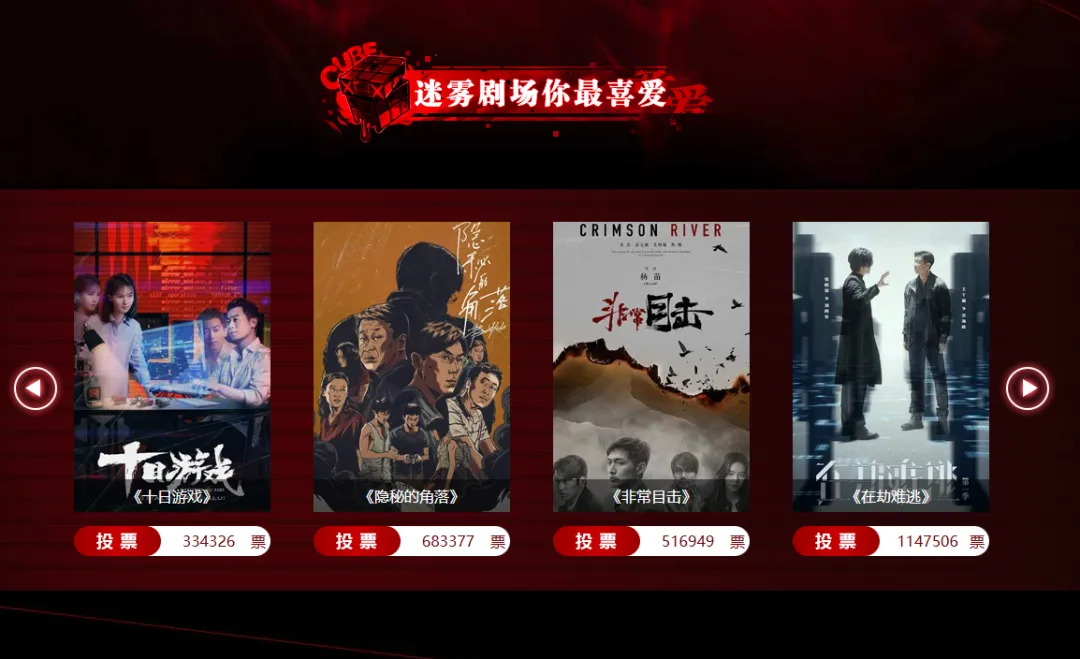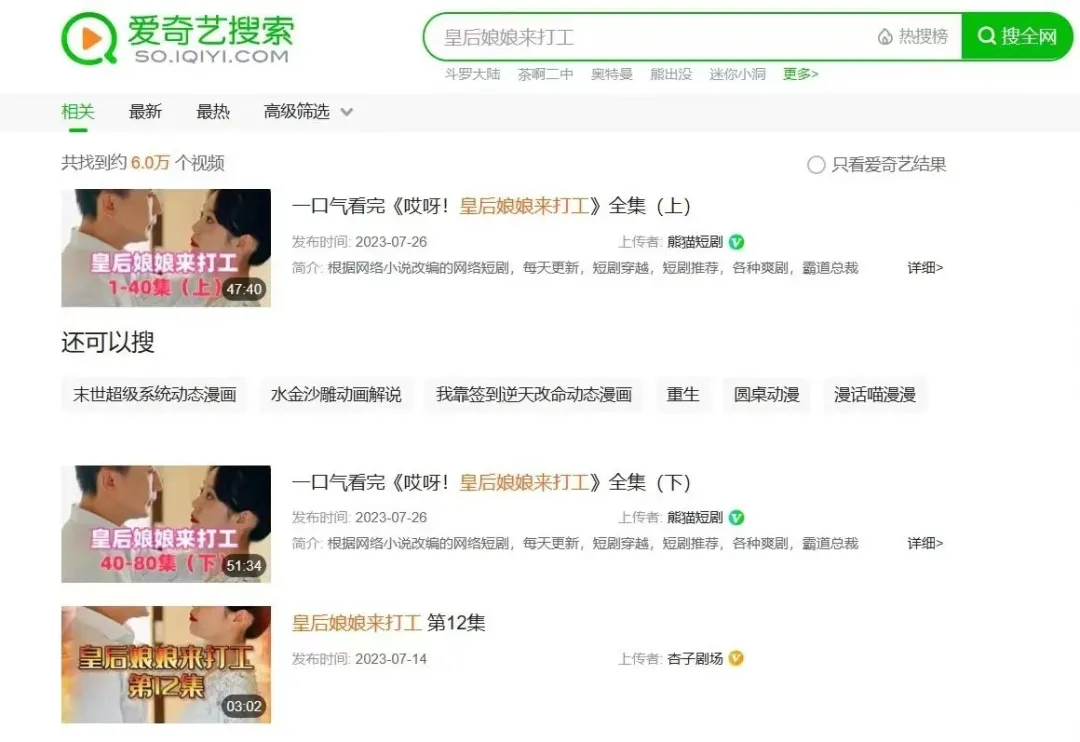iQiyi, Stop the "Raging Bull"
![]() 09/06 2024
09/06 2024
![]() 535
535

The long-video sector encounters the curse of profitability.
@FinanceNews Original
Author | Sakuragi Editor | Yingjuan
It seems there's no big surprise that iQiyi has delivered a slightly bleak performance report amidst the absence of blockbusters.
According to iQiyi's Q2 2024 financial report, the company achieved total revenue of RMB 7.439 billion in the second quarter, a 5% decrease from the same period in 2023. Net profit attributable to the company was approximately RMB 68.685 million, an 81.2% decline from RMB 365 million in 2023.
After achieving profitability for the first time in 2023, iQiyi has again encountered a significant decline in profitability just one year later.
In terms of business composition, iQiyi is a relatively straightforward company. Based on past financial reports, iQiyi's revenue sources can be broadly categorized into four parts: membership fees, advertising, copyright fees, and other businesses including live streaming, e-commerce, gaming, etc.
According to iQiyi's 2023 financial report, the revenue breakdown can be roughly estimated as follows: 63.6% from membership fees, 19.4% from advertising, approximately 7.8% from copyright fees, and 9.1% from other sources. In short, the number of members and the price of membership fees are the most critical factors affecting the company's performance.
Historically, blockbuster TV series (most notably "Raging Bull") have essentially determined the number of memberships and whether fees can be increased. From this perspective, iQiyi undoubtedly encountered setbacks in the second quarter and even the first half of the year, with no major blockbusters and frequent complaints about membership services. iQiyi, in pursuit of profitability, seems to have entered a negative feedback loop.
Looking back, iQiyi has already adopted a series of cost-cutting and efficiency-enhancing measures to achieve profitability, including but not limited to layoffs, increasing membership fees, and parting ways with high-cost production teams. As a result, the company achieved profitability in 2023, breaking its previous 12-year streak of losses.
However, after achieving profitability, iQiyi seems to have lost its former luster in content creation. Talent loss and limited production budgets have become sequelae of cost-cutting and efficiency enhancement measures, and the backlash came swiftly. The absence of blockbusters has accelerated competition from Tencent Video and Youku, while iQiyi's profitability is maintained in a tight balance. The inertia of membership payments accumulated through excellent content seems to be fading.
Walking the tightrope of profitability means that any slight misstep by iQiyi could plunge it back into losses. Breaking this tight balance requires iQiyi to face a game of attrition on all fronts, with a challenging competitive landscape and the impact of short videos making the battle increasingly intense. It remains uncertain whether iQiyi can navigate out of this vortex.
01 The Endless Battle for Blockbusters
For iQiyi, 2023 was arguably the most significant year in its history. The emergence and breakthrough of "Raging Bull" virtually single-handedly disrupted the balance among long-video platforms. According to data, "Raging Bull" was iQiyi's most trafficked, revenue-generating, and influential series in its 13-year history. According to Cloudhe Data, the series achieved a peak market share of 67.9% in terms of play counts, compared to 55% for "Celestial Chronicles" Season 2, which was the most popular series of the year by the same metric.
After the series' launch, iQiyi's membership base reached 129 million in Q1 2023, with membership revenue of RMB 5.55 billion, the highest quarterly figure in terms of both membership revenue and number in the past year. Meanwhile, the popularity of "Raging Bull" attracted numerous advertisers, with brands spanning various categories such as pharmaceuticals, beverages, automobiles, etc., appearing in the series. These brands, including Rio Strong, Jindi, GAC Toyota, Jingdu Nianci'an, 999 Ganmaoling, and Yade Electric Bikes, were distributed in various positions in diverse forms. Under the "Raging Bull Effect," these brands gained high visibility, and advertisers continued to invest, significantly boosting iQiyi's advertising revenue.
Meanwhile, with the strength of "Raging Bull," iQiyi truly achieved profitability in 2023, leading to a consensus within the industry that blockbuster series are the primary driving force.

Entering 2024, data suggests that the four major long-video platforms are deepening this consensus in various forms. According to the EntGroup's first-half TV series popularity index, Tencent Video occupied five of the top ten spots, iQiyi three, and Youku two. Tencent Video had a clear advantage in the first half. For iQiyi, however, the situation was less optimistic. According to EntGroup's statistics for the first half, iQiyi aired 61 long-form series (36 exclusive), leading in quantity but lagging in popularity. Among the top 30 series in VLinkage's first-half online broadcast index, Tencent Video led with 12 series. Despite airing the most series, iQiyi lagged in popularity, affecting its profitability.
Specifically, among the top series, iQiyi's three entries on the list — "The Chaser," "My Altay," and "Southbound and Northbound" — featured "My Altay" as the most successful in breaking through, but it was a mini-series of only eight episodes with limited impact on actual revenue, particularly when compared to Tencent Video's heavyweight series such as "Celestial Chronicles" Season 2, "Flowers of War," and "The Story of Roses."
More tangible data comes from iQiyi's second-quarter membership and advertising revenues, which declined by 9% and 2%, respectively, due directly to underperforming series. In contrast, Tencent Video's strength drove a 13% year-on-year increase in long-video paid memberships to 117 million.
The increase and decrease illustrate the intensifying competition in the sector. Blockbusters equal profits, reinforcing the realization that content is paramount in the long-video sector. The 2023 champion, without blockbusters in 2024, remains in crisis. This underscores the importance of blockbuster content as a platform's core competitiveness.
So why has iQiyi, which created "Raging Bull," lost its magic touch this year?
02 Sequelae of Cost-Cutting and Efficiency Enhancement
From a historical perspective, cost-cutting and efficiency enhancement have been the mainstay of iQiyi's development since 2021. The most notable sign is the declining content costs. In 2021, iQiyi's content costs were RMB 20.7 billion, which dropped to RMB 16.5 billion in 2022 and further to RMB 16.2 billion in 2023. In the latest financial report, second-quarter content costs declined by an additional 2% year-on-year to RMB 4.1 billion.
According to industry insiders, the reduction in content costs is likely due to decreased procurement expenses, given iQiyi's increasing proportion of original series. However, after several years of cost-cutting and efficiency enhancement, the benefits in terms of profitability growth have diminished as cost reductions have reached their limits.
Historically, iQiyi's cost-cutting and efficiency enhancement seem to be a long-term strategy. In December 2021, iQiyi embarked on its largest-ever round of layoffs, affecting departments including IP, gaming, film, and television, with layoff rates of 20% to 40%.
Beyond layoffs, iQiyi also implemented a "four abandonments" policy for content costs: abandoning purely pandering content, unrealistic content, clearly unprofitable content, and uninnovative content. In summary, iQiyi ceased investing in low return-on-investment and low-potential film and television productions.
The layoffs and cost reductions directly led to cost savings, but they also impacted iQiyi's business to varying degrees.
A concerning statistic comes from iQiyi's original series production. To reduce costs, the platform reduced procurement efforts and increased self-produced content, with the proportion of iQiyi's original series rising from around 50% in Q2 2022 to approximately 70% currently. Structurally, the proportion of original series has nearly reached its ceiling, limiting further cost reductions through original content production.
However, this was accompanied by a significant profit decline, with a year-on-year profit drop of 81.25% in a single quarter, indicating limitations in this strategy.

Another consequence of cost-cutting and efficiency enhancement has been the loss of talented content creators. Taking iQiyi's highly popular "Mystery Theater" as an example, once-acclaimed suspense dramas like "Hidden Corner" and "The Bad Kids" struggled to produce notable works after the departure of author Zijin Chen to Youku in 2021. Subsequent series like " Octagonal Pavilion Mist " (Bajiaoting Mist) performed poorly.
The sequelae of cost-cutting have led to instability within content teams. A relatively stable production approach is crucial for blockbusters, as evidenced by Tencent Video's collaboration between China Literature Group, New Pictures Media, and Tencent Video, which contributed to several blockbusters this year. Within iQiyi, a similar creative path seems to ensure blockbusters, exemplified by the enduring popularity of the "Detective Di Renjie" series into its second season. However, whether this path can be sustained amidst layoffs and cost-cutting requirements remains to be seen based on series popularity.
Overall, cost-cutting and efficiency enhancement have seemingly impacted iQiyi's content production, while competitors have matured. Under profit pressure, iQiyi's content investments have been relatively conservative. Despite a significant profit decline, the impetus for change is limited. From a capital market perspective, such caution fails to impress investors. Without blockbusters and limited cost-cutting potential, iQiyi risks slipping back into losses.
03 Caught Between Two Fronts, Market Share Eroded
iQiyi's relationship with short-video platforms has always been one of apparent harmony but underlying tensions.
On July 19, 2022, iQiyi and Douyin announced a groundbreaking partnership, with iQiyi opening up its long-video content rights for short-video creation. The two companies also explored cooperation in short-video creation and promotion based on long-video content, initiating a new win-win model.
At the time, iQiyi clarified its objectives: While not immediately requiring Douyin to share cost pressures, it did expect traffic support. iQiyi valued Douyin's traffic and hoped to boost the popularity of its hit series, movies, and variety shows through the latter's short-video creations.
However, subtle changes ensued. The emergence and popularity of short dramas marked a turning point. In 2023, numerous short dramas originating from short-video platforms appeared on iQiyi, including some labeled "Exclusive on Douyin." Even some short dramas previously requiring payment on Douyin and Kuaishou became free collections on iQiyi.

If short-video platforms merely competed for attention, the rapidly growing short-drama market with its maturing business model can be seen as a direct competitor to long-video platforms like iQiyi.
Fundamentally, the short-drama market boasts shorter production and distribution chains, higher efficiency, and quicker market penetration through volume. According to Kuaishou's 2023 financial report, the number of daily active users watching over 10 episodes of short dramas reached 94 million in Q4 2023, a 50% year-on-year increase.
Industry insiders regard this figure as a stunning change within the streaming industry. With the short-drama boom spanning less than two to three years, the 94 million heavy users rival the subscriber base of top long-video platforms like iQiyi and even exceed that of second-tier platforms.
iQiyi CEO Gong Yu's stance on short videos and short dramas is intriguing. He stated, "We can't cater to all users. We focus on our target market where there's a growing demand for thoughtful, high-quality, and valuable long-video content. We produce and broadcast such works, which is our pursuit." However, iQiyi's attempts in this direction have yielded limited results.
In summary, iQiyi seems trapped in a narrow space, facing internal pressures of cost-cutting and efficiency enhancement alongside the desire for profitability. Externally, emerging media forms like short dramas continually compress its market share. In the broader context of the long-video sector, iQiyi stands virtually alone, with Youku representing Alibaba's "Happiness and Health" strategy, Tencent Video embodying Tencent's IP incubation and traffic gateway, and Mango TV backed by Hunan Broadcasting System. The correlation between iQiyi and Baidu appears to be declining.
From turning a profit to a significant profit decline, iQiyi's true test seems to have just begun. The company faces an increasingly intense competitive landscape, and whether iQiyi can successfully navigate these challenges remains uncertain.







